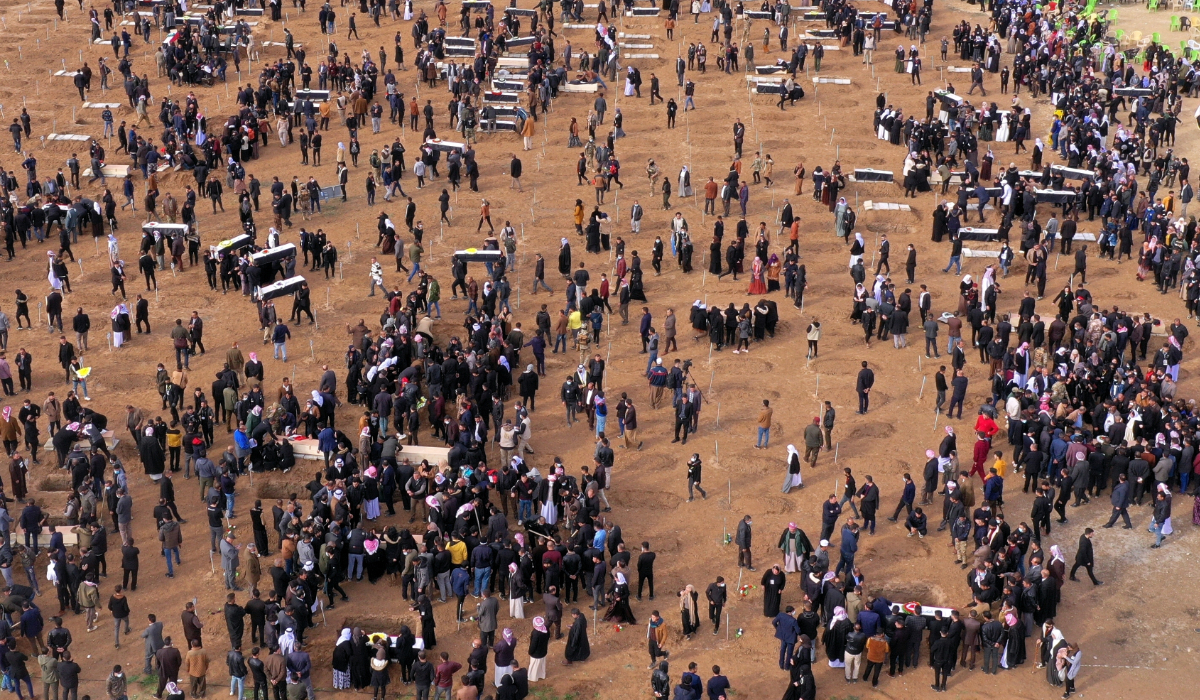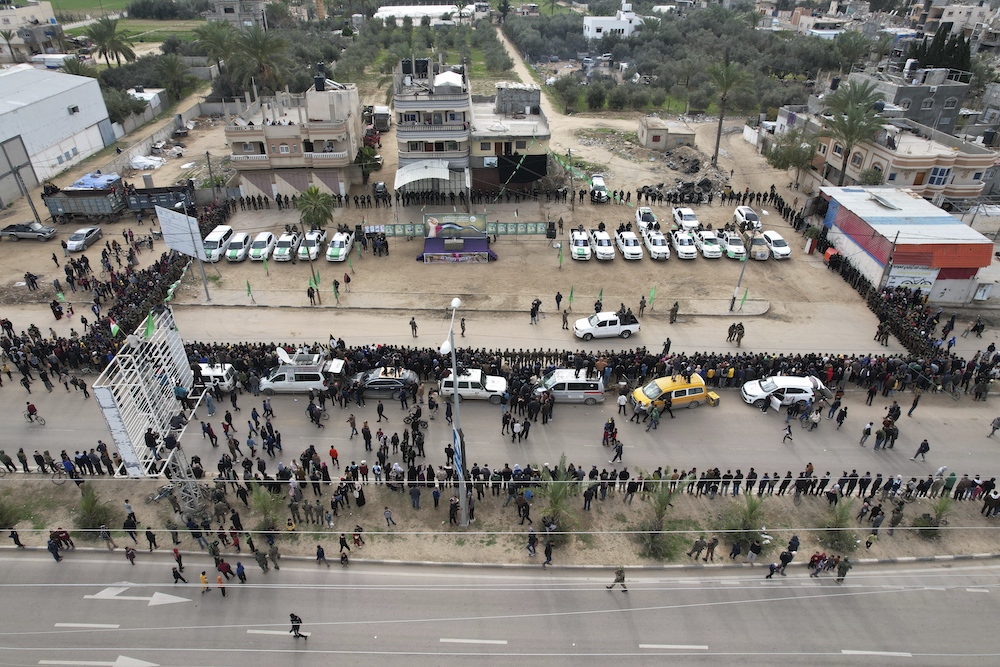KOCHO, Iraq: Ten years ago, their village in Iraq’s Sinjar region was decimated by Daesh militants. Yazidi men and boys were separated and massacred, Yazidi women and children were abducted, many raped or taken as slaves.
Now the survivors are coming back to Kocho, where Yazidi community leaders on Thursday announced plans for an internationally funded new village nearby to house those displaced in what was one of the bloodiest massacres by the Daesh group against their tiny and insular religious minority.
On Aug. 15, 2014, the extremists killed hundreds in Kocho alone. During their rampage across the wider region of Sinjar — the Yazidi heartland — Daesh killed and enslaved thousands of Yazidis, whom the Sunni militants consider heretics. To this day, the Kocho massacre remains as a glaring example of Daesh atrocities against the Yazidi community.

An aerial view of mourners preparing to bury the remains of Yazidi victims in a cemetery in Sinjar, Iraq, Saturday, Feb. 6, 2021. (AP)
Out of 1,470 people in Kocho at the time, 1,027 were abducted by the Daesh, 368 were killed and only 75 managed to escape, according to a report by the Middle East Center at the London School of Economics.
All the permits have now been finalized and construction for the new village will break ground on Sept. 5, said Naif Jaso, a prominent Yazidi leader.
The New Kocho is planned to be built near the village of Tel Qassab, 10 kilometers (6.2 miles) north from the original Kocho, now mostly in ruins.
The International Organization for Migration, the UN Development Program and Nadia’s Initiative, an nonprofit founded by Yazidi survivor Nadia Murad, are hoping it will provide much-needed housing and infrastructure to encourage displaced Yazidis to return to their historic homeland.
Their return is a thorny issue and few Yazidis have trickled back to their former homes. In Sinjar, the situation is particularly grim, with destroyed infrastructure, little funding for rebuilding and multiple armed groups vying to carve up the area.
Though Daesh was defeated in Iraq in 2017, as of April this year only 43 percent of the more than 300,000 people displaced from Sinjar have come back, IOM says.
Jaso said 133 displaced families have said they are willing to return and settle in New Kocho Village, which envisages parks, marketplaces, a health facility, a psychiatric support center and recreational spaces along with homes for people.
Each house will be built according to the size and needs of each family, Nadia’s Initiative’s spokesperson Salah Qasim said.
Alyas Salih Qasim, one of the few male survivors from Kocho says he plans to go back once the new village is ready. He has been living for years in a displacement camp in northern Iraq’s semi-autonomous Kurdish region and plans to settle in the new village.
“I would love to return to my original house,” he said but was not optimistic about others — many Yazidis have since migrated and started new lives elsewhere.
But it’s “difficult ... to return to an empty village, and it’s better if we settle in the New Kocho once they finish constructing it,” he said.
Earlier this year, Iraq’s government ordered displacement camps in the Kurdish region housing thousands of Yazidis to be closed by July 30 and even offered payments of 4 million dinars (about $3,000) to those who leave, but later postponed the order.
Fatima Ismael, another survivor of the Kocho massacre who has been living in the same camp as Qasim for nine years and also hopes to settled in the new village, said the old village of Kocho contains too many painful memories.
The remains of her husband and two of her sons were found in a mass graves while three other sons are still missing, with empty graves waiting for them at the local cemetery.
“I can never return home because I can’t look at the empty rooms,” she said, though she misses the old village community. “How can I live with that?”
Survivors still live in fear of Daesh and part of the reason for placing the new Kocho at a distance from the old village is to be closer to mountains where many Yazidis took refuge during the militants’ rampage. Since their defeat, Daesh militants have gone underground but are still able to stage surprise attacks.
Commemorations and ceremonies like Thursday’s bring back traumatic memories.
“It feels like the first day every time there’s a ceremony or event to remember these days,” Qasim said. “Whatever they do for us, or how hard they try, what we saw is unbearably terrible and impossible to forget.”























